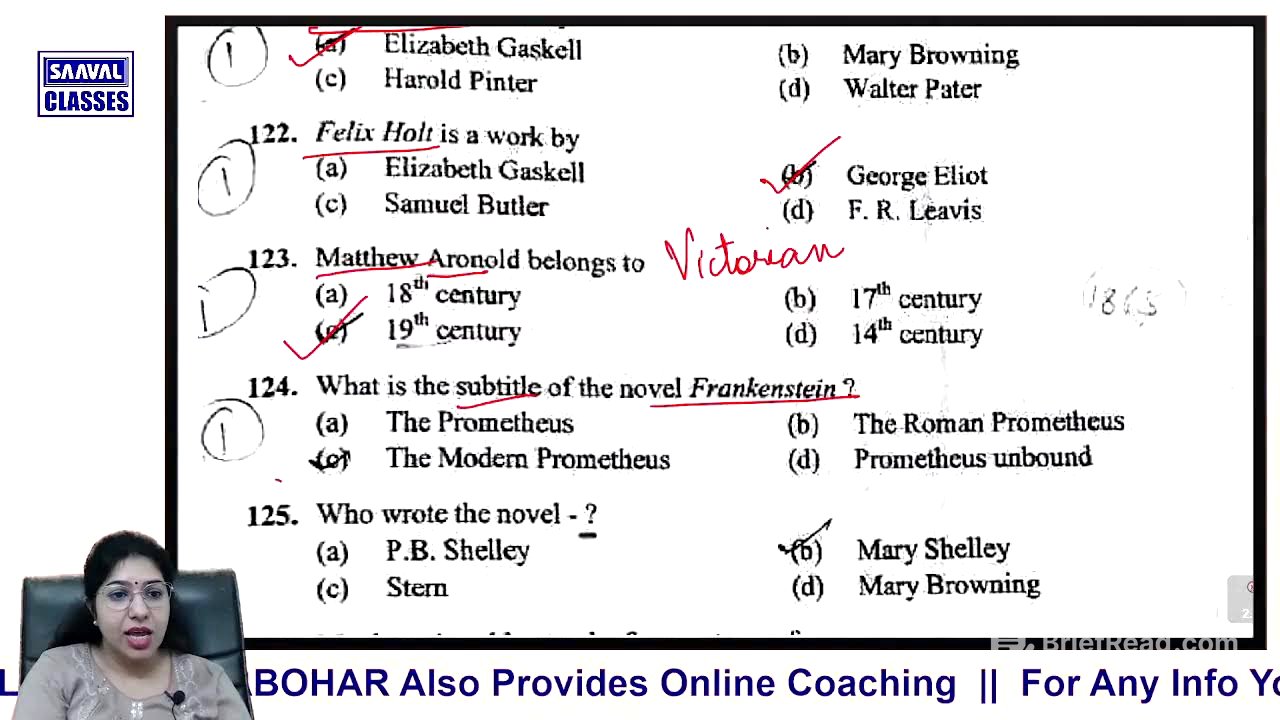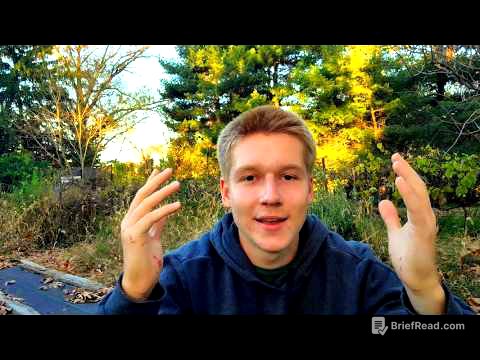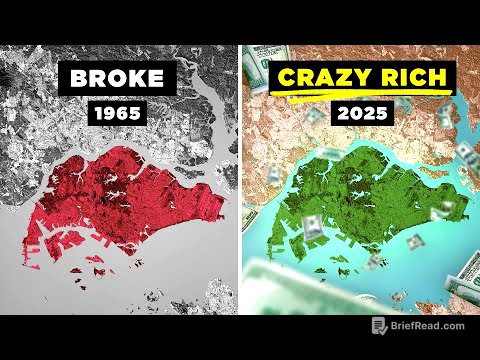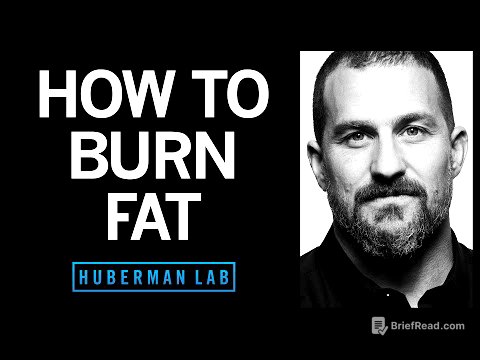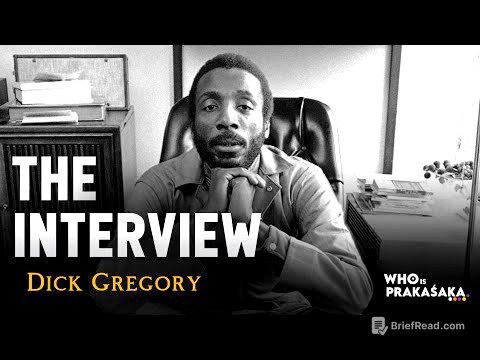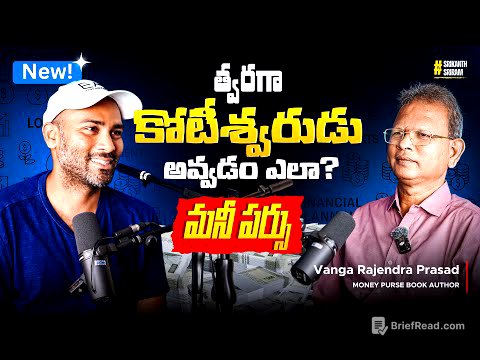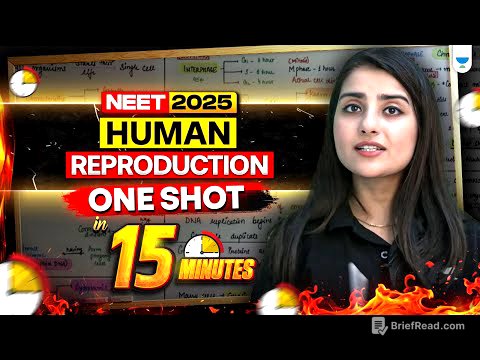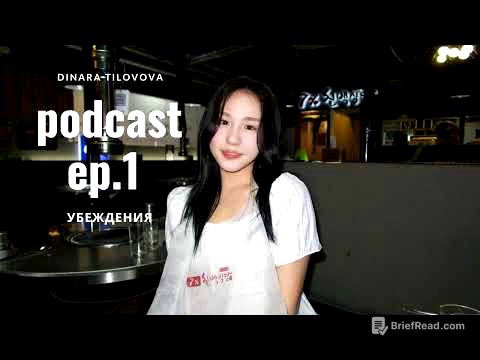TLDR;
This video provides a detailed walkthrough of a past exam paper, offering insights and explanations for each question. The instructor emphasizes understanding key concepts, literary works, and historical contexts relevant to the exam. The video aims to build confidence and familiarity with the exam format, covering a wide range of topics from literary figures and their works to language-related questions and Nobel Prize winners.
- Exam paper walkthrough with detailed explanations.
- Covers literary works, historical contexts, and language concepts.
- Aims to build confidence and familiarity with the exam format.
Introduction [0:00]
The instructor welcomes students and introduces the session's focus: a detailed discussion of a past exam paper from 2016. The goal is to provide clarity and build confidence by thoroughly explaining each question and its answer. The session aims to help students familiarize themselves with the exam pattern and the types of questions asked.
Question 1-9 [1:19]
The discussion begins with the first question, focusing on the time of publication. The instructor explains the context and significance of lyrical ballads. The instructor also touches on plays and their entry, emphasizing the importance of knowledge and understanding of literary works.
Question 10-16 [3:22]
The instructor addresses questions related to literary figures such as William Blake and discusses the concept of "protest" in literature. The instructor explains the code of gallery.
Question 17-23 [5:35]
The instructor explains the meaning of being "immersed in all things" and discusses the definition of an "ode" in poetry. The instructor also touches on the concept of "destroyer and preserver".
Question 24-30 [8:03]
The instructor discusses the inclusion of specific animals in a literary context, such as a unicorn. The instructor emphasizes that understanding the material makes it less difficult.
Question 31-37 [9:44]
The instructor identifies which of the listed works is not by Shakespeare. The instructor also discusses the challenges of old customs in the modern era, referencing Charles Dickens and the effects of the industrial revolution.
Question 38-44 [12:04]
The instructor discusses the Nobel Prize and its criteria. The instructor also touches on the displacement of people and the changing social dynamics.
Question 45-51 [13:35]
The instructor analyzes a character named Anjali, describing her as a spiral victim of family misunderstandings. The instructor also discusses the inspiration behind Robert Browning's "The Jungle Book," linking it to a murder trial.
Question 52-58 [15:27]
The instructor references John Ruskin's views on economic conditions and mentions a work influenced by water pressure. The instructor also mentions studies in the history of Rhodes.
Question 59-65 [17:15]
The instructor discusses the Memorial Club and its significance. The instructor also advises on how to approach questions, suggesting the elimination of problematic options.
Question 66-72 [19:19]
The instructor explains the opposite of "present" and discusses how control can be managed. The instructor also touches on the concept of consciousness.
Question 73-79 [21:36]
The instructor references page number 90 and mentions a comment by T.S. Eliot. The instructor also discusses the concept of superstition.
Question 80-86 [23:47]
The instructor identifies which of the listed options does not belong to Ireland. The instructor also mentions a novel by More Emphasis.
Question 87-93 [24:55]
The instructor discusses the concept of true love and mentions Ayodhya. The instructor also identifies what is not a form of socialism.
Question 94-100 [25:55]
The instructor discusses how to identify a person and mentions a flute player. The instructor also references a character in India's professor.
Question 101-107 [27:15]
The instructor mentions a Nobel Prize written in 1954. The instructor also discusses research operation execution.
Question 108-114 [28:29]
The instructor identifies what is not a playlist play. The instructor also references practical criticism.
Question 115-121 [29:32]
The instructor discusses the beginning of a career and mentions W.B. Yeats. The instructor also references a poem written by Id.
Question 122-128 [30:21]
The instructor discusses the concept of the third world and mentions jaundice. The instructor also clarifies a question about Ireland.
Question 129-135 [32:17]
The instructor discusses the strengthening of modern offering balance. The instructor also touches on moral and ancestral sides.
Question 136-142 [33:05]
The instructor mentions power and glory in the context of Mexico and America. The instructor also discusses white American respect in Vietnam.
Question 143-149 [33:38]
The instructor defines "three traps" as humor. The instructor also discusses autobiographical elements.
Question 150-156 [34:14]
The instructor discusses the setting of the British Raj. The instructor also defines "overcrowded idiot" as a collection of personal and political articles.
Question 157-163 [34:50]
The instructor identifies Salman Rushdie and discusses social conventions. The instructor also mentions R.K. Narayan's literature.
Question 164-170 [36:22]
The instructor discusses the introduction of Ambedkar and the addition of cars. The instructor also mentions Arundhati Roy.
Question 171-177 [37:37]
The instructor discusses who wrote a particular story. The instructor also identifies which work is not by Mulk Raj Anand.
Question 178-184 [38:26]
The instructor mentions Rabindranath Tagore and Arundhati Roy. The instructor also discusses a noble character.
Question 185-191 [39:31]
The instructor discusses Rabindranath Tagore and the Jallianwala Bagh incident. The instructor also mentions the Second World War.
Question 192-198 [41:12]
The instructor discusses attack and logical systems. The instructor also provides the full form of IPL.
Question 199-205 [41:40]
The instructor discusses the presentation of a child. The instructor emphasizes the importance of reading the questions and options carefully.
Question 206-212 [43:27]
The instructor discusses understanding natural language. The instructor also mentions Prince Charles and the 2021 paper.
Question 213-219 [45:06]
The instructor discusses language and its characteristics. The instructor also touches on formal and informal registers of language.
Question 220-226 [46:49]
The instructor discusses following rules and switching sentences upside down. The instructor also mentions vocabulary and its units.
Question 227-233 [49:28]
The instructor discusses covering encroachment and using norms. The instructor also mentions language and fish.
Question 234-240 [50:40]
The instructor discusses laughter and astrology words. The instructor also mentions pilgrim lodges.
Question 241-247 [52:11]
The instructor discusses crossing the limit and alien life. The instructor also mentions the date of birth.
Question 248-254 [53:33]
The instructor discusses the past form of Paris and inspiring by water and principles. The instructor also mentions Nobel.
Question 255-261 [54:15]
The instructor discusses Venus and William Shakespeare. The instructor also identifies what is not a play.
Question 262-268 [54:36]
The instructor discusses Thomas Center and the world of Doctor Faustus. The instructor encourages viewers to subscribe and share.
Question 269-275 [55:53]
The instructor discusses conflict in families and family fights. The instructor emphasizes understanding such things.
Question 276-282 [56:43]
The instructor discusses health tips and the Nobel Prize. The instructor also mentions the Victorian era.
Question 283-289 [57:13]
The instructor encourages viewers to subscribe and mentions Grace Marcus. The instructor also discusses touchstone Mithila.
Question 290-296 [58:00]
The instructor discusses liberty and doctors. The instructor also mentions Shakespeare.
Question 297-303 [59:29]
The instructor discusses the battle between tribes and the mediator. The instructor also mentions the modern model.
Question 304-310 [1:00:32]
The instructor discusses relationships and the universe. The instructor also mentions children and the boss surgeon.
Question 311-317 [1:01:33]
The instructor discusses flight.
Question 318-324 [1:01:44]
The instructor discusses characters and essays.
Question 325-331 [1:02:12]
The instructor discusses poems and Richardson.
Question 332-338 [1:02:36]
The instructor discusses newspaper writing and play lists. The instructor also mentions popular books.
Question 339-345 [1:03:05]
The instructor discusses reading habits and circulating libraries.
Question 346-352 [1:03:41]
The instructor discusses adulteration style and the Nobel Prize.
Question 353-359 [1:04:06]
The instructor discusses third-person verification.
Question 360-366 [1:04:24]
The instructor discusses noble lies.
Question 367-373 [1:04:41]
The instructor discusses volume.
Question 374-380 [1:05:08]
The instructor discusses lines.
Question 381-387 [1:05:34]
The instructor discusses history.
Question 388-394 [1:05:47]
The instructor discusses romantic literature.
Conclusion [1:06:41]
The instructor concludes the session, encouraging students to solve the paper and emphasizing that the paper is very easy. The instructor advises students to read questions and options carefully and not to walk aside. The instructor thanks the students.
